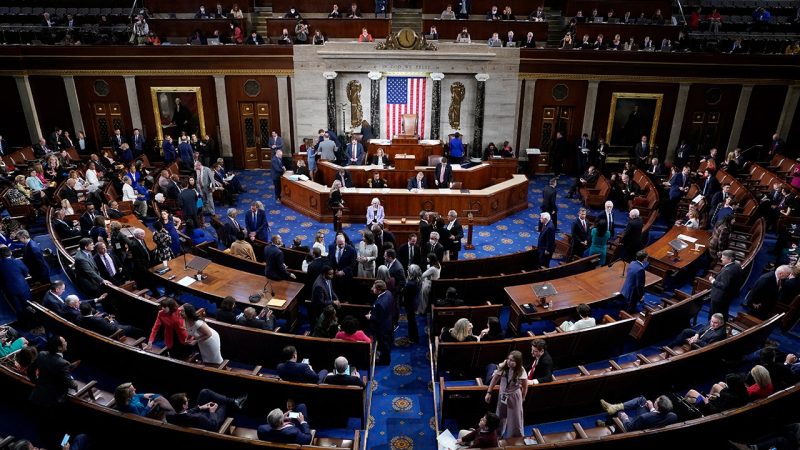Beware the ides of August.
I have written that line since the late ‘aughts’ here on Capitol Hill.
Shakespeare penned the line, ‘Beware the ides of March,’ in his play ‘Julius Caesar.’
A soothsayer had warned the Roman leader to not let up his guard around the middle of the month. And as it turns out, that’s when Caesar was assassinated on the ‘ides of March’ — March 15.
What an omen.
Foreboding. Cursed. Ominous.
In fact, the entire month of March can sometimes appear that way meteorologically.
We use a different metric in politics and specifically on Capitol Hill. August shouldn’t be such a terrifying month. After all, it’s summer. But without a doubt, some of the most utterly strange and consequential political events form in August.
This is ironic in Washington. That’s because the House and Senate are usually out of session for most of August.
But periodically, the vacuum of Congress being away from Washington actually generates its own news. That’s because some major issue may erupt, pressing Congress into meeting in August when it’s not supposed to do so. Occasionally an event is so significant that lawmakers are summoned back to Washington to tackle a catastrophic issue.
Congress is long gone from Washington this August. Both the House and Senate abandoned the nation’s capital in late July. The House even cut town a day early after Republicans couldn’t reach consensus on approving an agriculture appropriations bill. So it would take a lot to siphon lawmakers back to town this August.
But real world events have a way of doing that.
Congress remained in session into early August in 2011 to wrestle with the debt ceiling. That coincided with the day that former Rep. Gabrielle Giffords, D-Ariz., miraculously returned to Congress just months after being shot in the head. And a few days later, Standard & Poor’s downgraded the credit worthiness of the federal government due to the debt ceiling drama.
Lawmakers returned in late August 2013 for intelligence briefings on Syria. Former President Obama was trying to engineer support for potential military action in and around Syria. But the votes on Capitol Hill never materialized.
The Democratically-controlled House famously failed to approve a crime bill in August 1994, when crime spiked around the nation. Democrats viewed adoption of the crime bill as key to their electoral success heading into the midterm elections. A few weeks later, Democrats successfully marshaled the votes, and recalled the House in late August to approve the crime bill.
As it turned out, Republicans tethered the bill to the Democrats and won the House that fall for the first time in 40 years.
All because of what unfolded in August.
Something similar unfolded in August 2009. And, to a lesser degree, in August of 2010.
Congress was out for the month in 2009. But congressional Democrats were trying to pass Obamacare. Republicans met this effort with vitriolic town halls. The tea party was on the rise, opponents of the then-president and Republican loyalists showed up at town meetings to heckle and taunt Democrats. These raucous August sessions helped energize Republicans — especially after Congress approved the health care bill in March of 2010. Moreover, they captured a lot of news oxygen and dominated the headlines that August. That set the table for Republicans to win back the House in the 2010 midterms, capturing a staggering 63 seats.
All because of August.
In fact, Republicans began to hone this ‘August strategy’ in the summer of 2008.
The House voted to leave for more than a month. Being a presidential election year, both Democrats and Republicans were holding their presidential conventions in August and early September.
But that didn’t stop Republicans from commandeering the House chamber on a daily basis to hold rump sessions and rail against the Democratic majority. House GOPers rotated a set of members on a daily basis — even dragging some members of the Capitol press corps into the chamber to observe the action. The GOPers would also bring in tourists. Republicans made sure they focused on their target: then-House Speaker Nancy Pelosi, D-Calif.
Republicans even claimed that Pelosi adjourned the House by herself and locked them out of the chamber. Never mind that roll call vote I mentioned earlier to adjourn for the conventions. And the speaker certainly didn’t lock anyone out. After all, the Republicans wouldn’t have made it into the chamber each day if the doors were locked.
But the rhubarb made a good show for Republicans in August 2008.
Sometimes non-political forces force Washington, D.C., into action in August. Congress returned to session in August 2006 after Hurricane Katrina pulverized the Gulf Coast.
Still, these episodes surrounding Congress in August pale to other major political news stories that emerged in August.
The late President Truman dropped bombs on Hiroshima and Nagasaki in August 1945.
Martin Luther King Jr. delivered his ‘I Have a Dream’ speech in Washington in August 1963.
President Nixon resigned in August 1974 as President Ford took over.
It was still August 31, 1983, in Washington (barely) when the Soviets shot down a Korean Air Lines flight, killing all 269 people on board. Among the dead: late Rep. Larry McDonald, R-Ga.
Late Rep. Mickey Leland. R-Texas and congressional aides died in a plane crash in August 1989.
Iraq invaded Kuwait in August 1990, teeing up the first Gulf War in 1991.
Princess Diana died in Paris in August 1997.
Russia invaded Georgia in August 2008 — a partial prelude to today’s war in Ukraine.
Late Sen. Ted Stevens, R-Alaska, died in a plane crash in August 2010.
A 5.8 magnitude earthquake centered in Virginia rocked Washington, D.C., damaging the Capitol complex in August 2011.
The white supremacist ‘Unite the Right’ rally unfolded in Charlottesville, Virginia, in August 2017.
And so far, this August has been far from inconsequential.
Special Counsel Jack Smith indicted former President Trump on charges of trying to overturn the election and linking him to the Capitol riot on Aug. 1. Trump appeared in federal court in the shadow of the Capitol on Aug. 3.
Sandwiched between that was a wild scene on the Senate side of the Capitol on Aug. 2. U.S. Capitol Police searched the Senate office buildings, in pursuit of a potential active shooter. The episode frightened hundreds of congressional aides, workers, reporters and tourists, all in the Senate office buildings.
This all unfolds as there is chatter about another indictment looming for the former president in Georgia. And congressional Republicans are sure talking about trying to impeach President Biden when lawmakers return in September. There will be lot of talk about impeachment this August, even if it doesn’t result in impeachment for the president.
Discussion about impeachment for then-President Trump really accelerated in August 2019 — resulting in his first impeachment later that year. It wouldn’t have happened but for the events of that August.
And, much like S&P in 2011, credit rater Fitch downgraded the federal government’s credit ratings this August due to the debt ceiling drama of the spring. That sparked a market selloff.
So August is seminal in politics.
We’re now approaching the middle of August. If history is our guide, beware the ides of August.
Even if the ides of March get most of the attention.


































